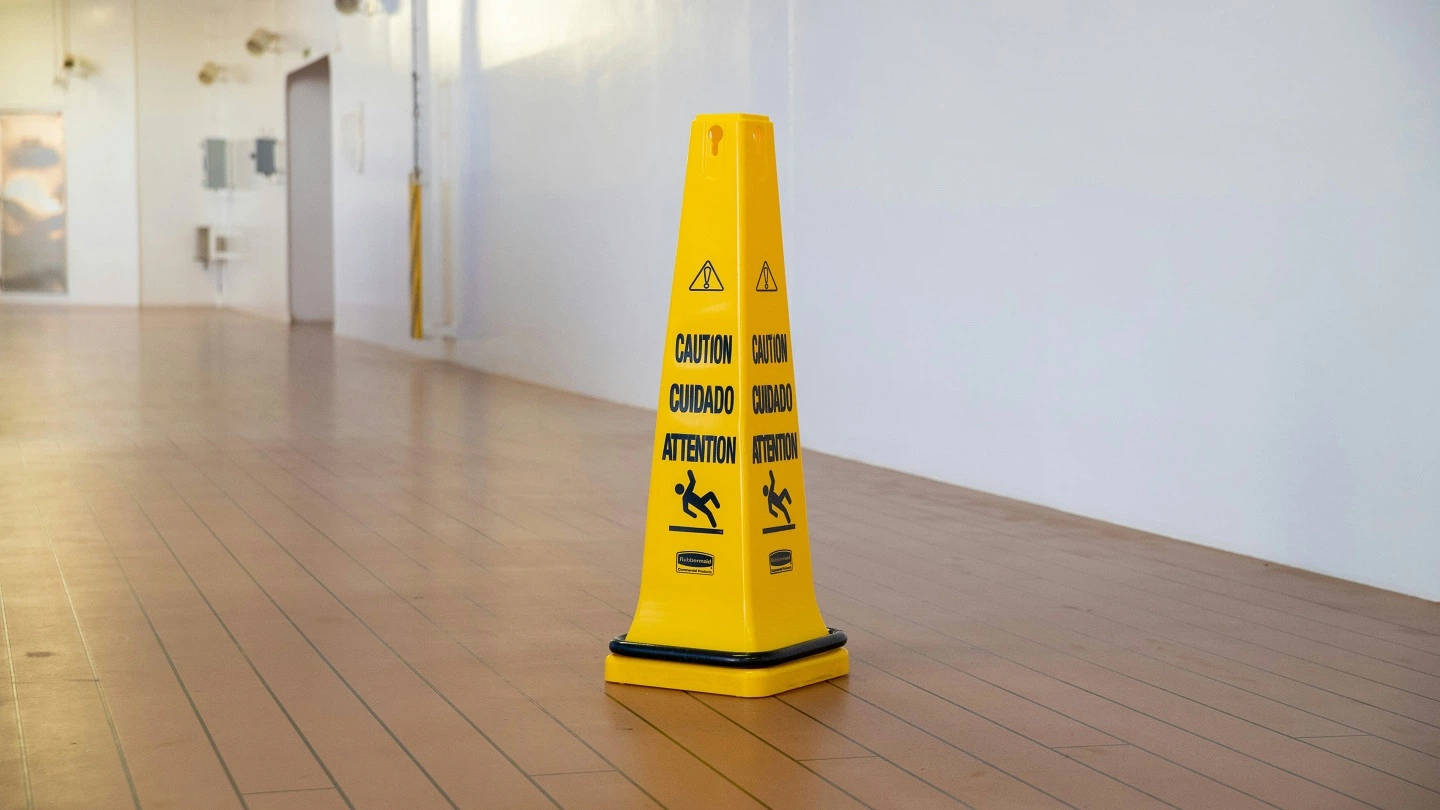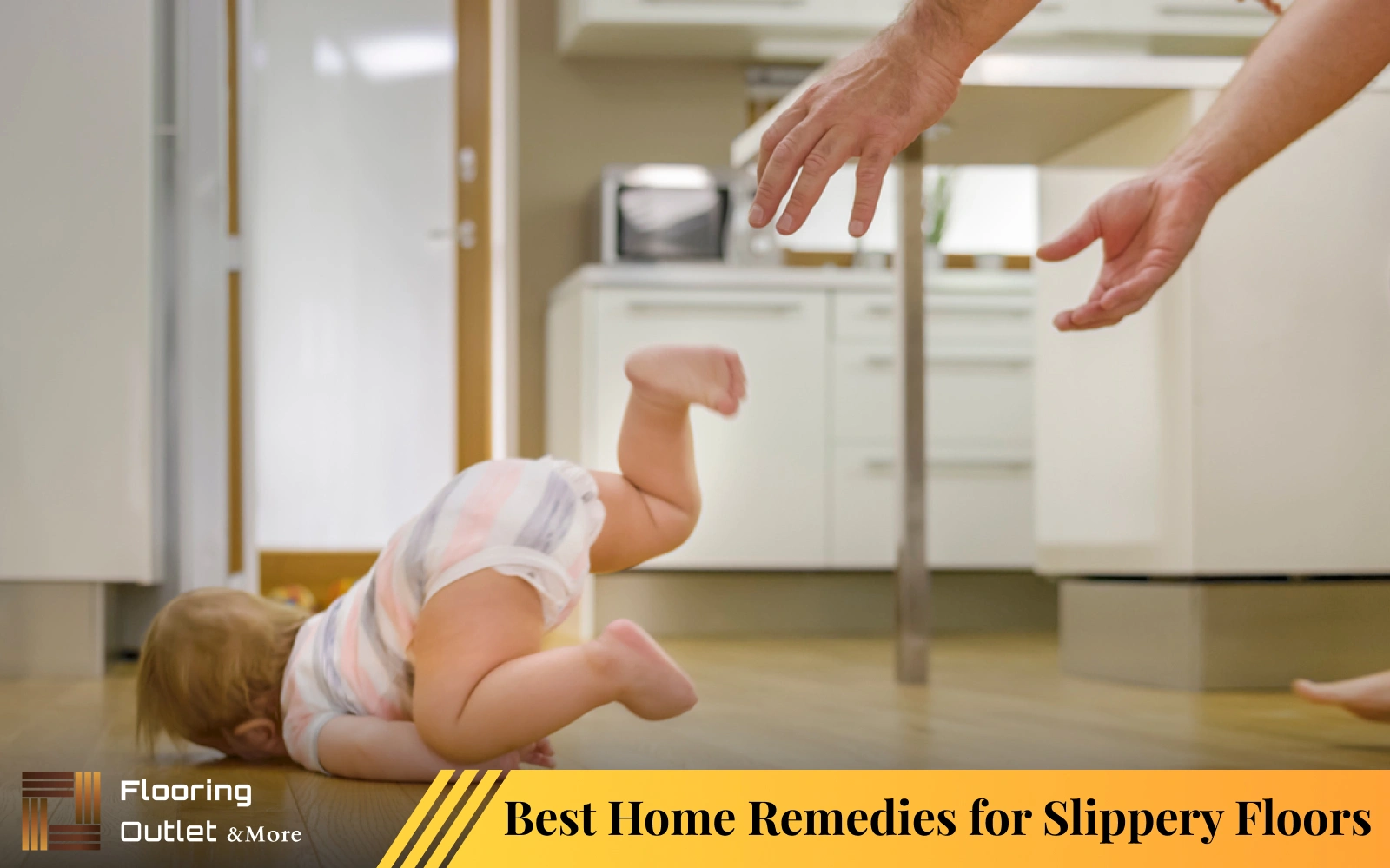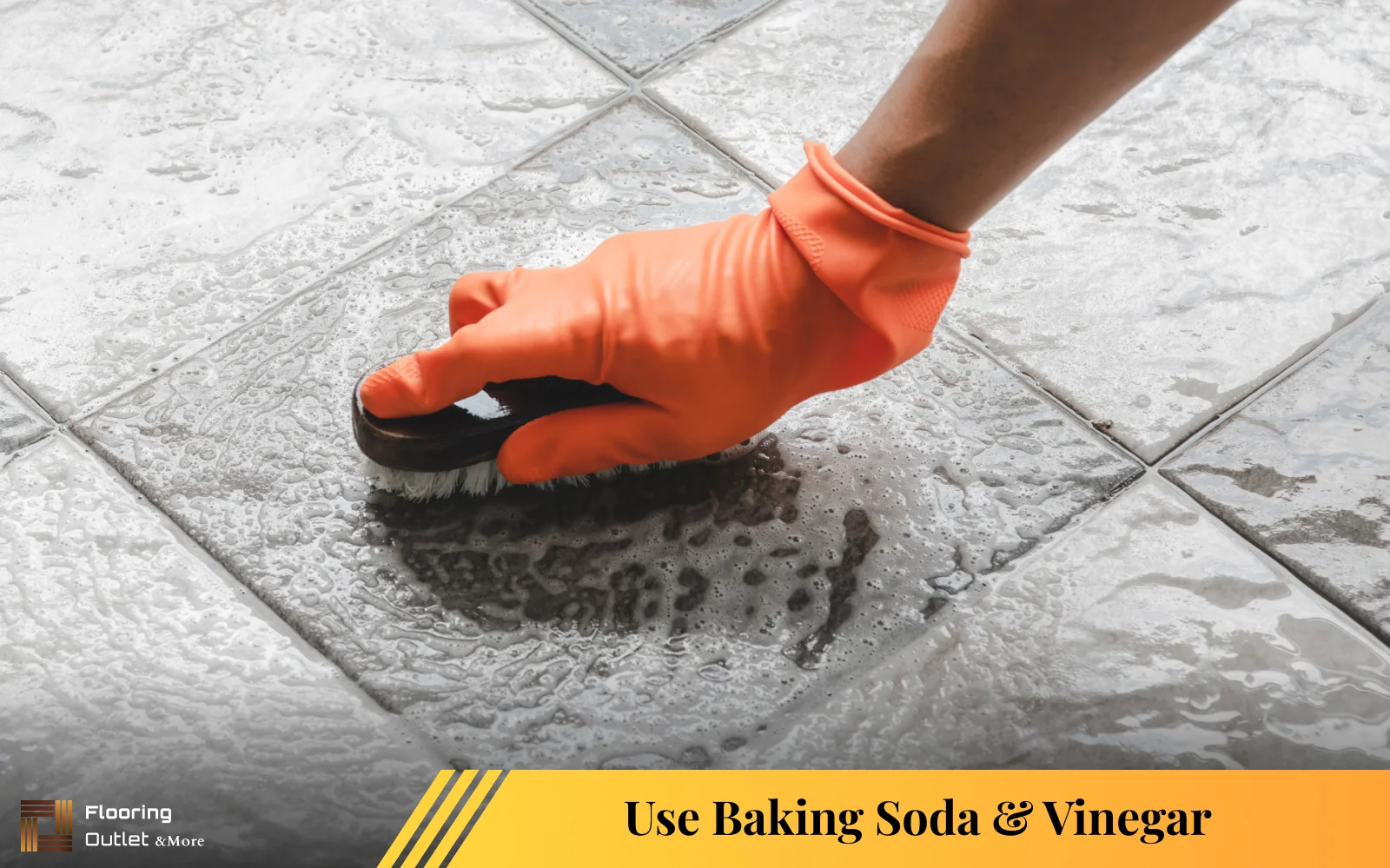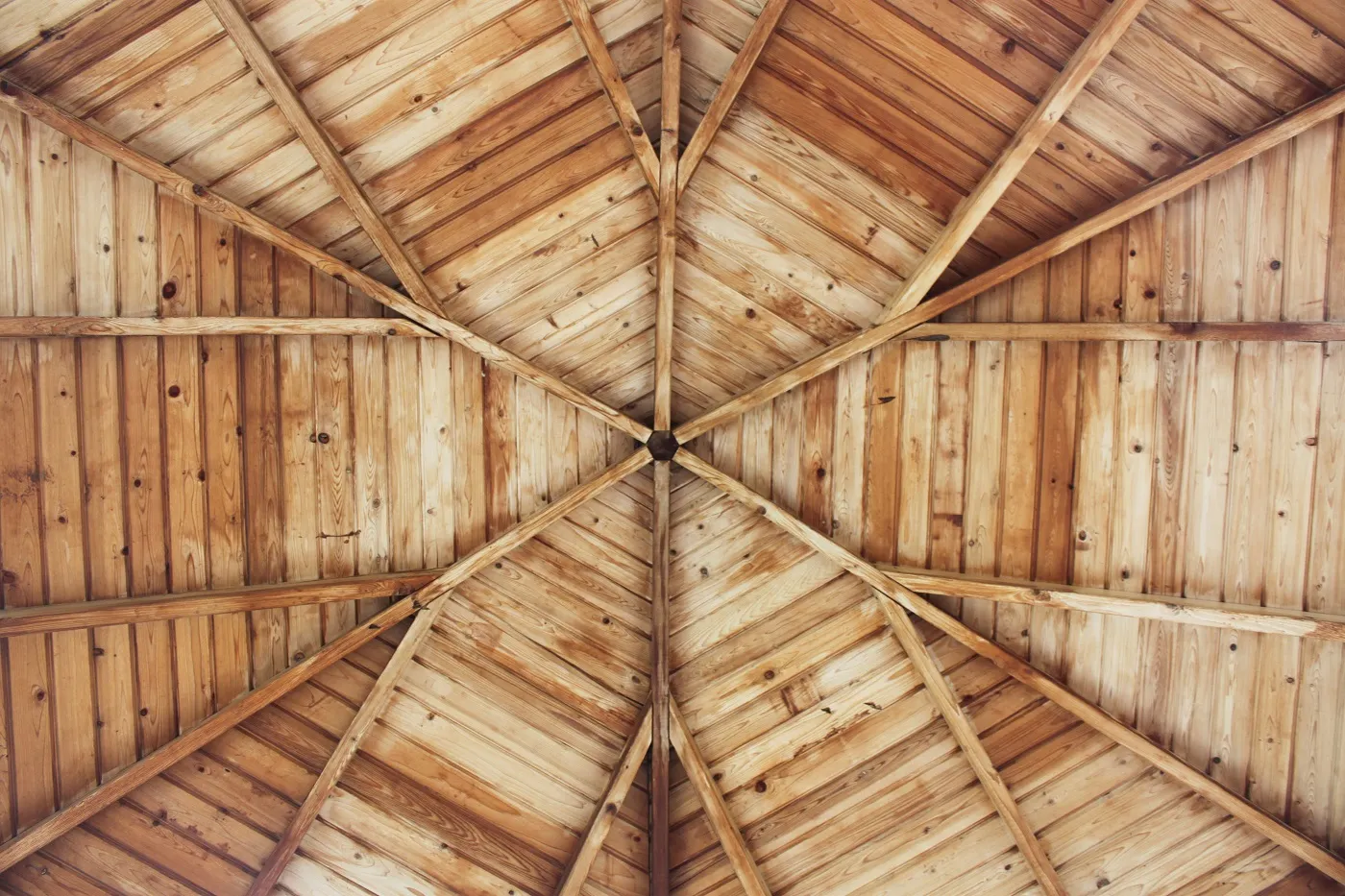8 Solution and 7 Home Remedies for Slippery Floors

They look smooth and shiny, but are they safe? More than one million people slip, trip, and fall every year, which makes these accidents the most common reason for emergency visits. They cause almost one-third of non-fatal incidents in places where we live or work. As a long-run slapstick joke, they are no longer a laughing matter since they can result in permanent disability or, even worse, death. So, what is the number one cause of all these accidents? That’s right, slippery floors.
The good news is that there are eight safety floor cleaning tips to help you prevent disastrous accidents for your loved ones:
1. Keep Floors Dry
Wet floors are the first cause of slips, so wipe out all the signs of moisture on the floors. To have dry floors, you can install anti-slip floor mats, too. A proper ventilation system is another solution. You can also consider installing proper water-resistant flooring material to prevent future problems.
2. Use Dry Mops
Microfiber mops or soft cloths are perfect tools for cleaning slippery floors as they minimize the moisture left on the surface. If you don’t use a dry mop, a layer of germs will stick to it when used several times. In this way, floors become slippery again even after cleaning. You can use a different dry mop each time you clean the floor.
Tip: Explore Flooring Outlet and More’s laundry room flooring sale in California.
3. Use Floor Cleaners
If you are suffering from slippery floors, use anti-slip PH-neutral cleaners. Although not permanent, they are handy and practical. Economically efficient, they remove all oil, grease, fat, and dirt and extend the floor’s life.
4. Choose the Right Kind of Cleaner
Choosing the appropriate cleaner is essential in maintaining the beauty and safety of the floor. The cleaner you use should exactly match your floor type. To ensure that it works, it is a good idea to test a small portion of the cleaner on the floor in advance and see if the surface is still slippery.
5. Clean Floors Thoroughly & Regularly

Moisture, soap, dust, wax, and grease can all lead to slippery floors, so clean the floor thoroughly to eliminate any filth. Routine cleaning also eliminates all the dirt that has accumulated on the surface.
6. Use Degreasing Agents
Garage or kitchen flooring will likely become oily, so using a degreasing agent or mopping with water can help reduce the slipperiness. Use a degreasing agent that suits the type of floor you have.
7. Use Door Mats
Mats are designed exclusively for different areas at home or the workplace. Make sure you have employed the right kind of matting for each place.
8. Add Non-Slip Rugs
Besides making the floor look more beautiful, rugs prevent falls and slips.
Home remedies for Slippery floors
Home remedies and off-the-shelf cleaners are both helpful and affordable. You can also access them everywhere. Here are some home remedies to reduce the risks:
1. Vinegar & Water
Vinegar’s acidity can eliminate any slippery residue. You should follow the six steps below to clean the surface
– First, wipe out the floor and remove any dirt or dust;
– Then, mop the floor and let it dry thoroughly;
– Next, mix one part of white vinegar and an appropriate amount of water (almost two parts) in a bucket;
– Pour the mixture on the floor and mop it afterward;
– Let it dry completely.
Apply the vinegar solution two or three times a week to reduce slipperiness.
2. Baking Soda & Vinegar

- First, mix sprinkles of baking soda and an appropriate amount of vinegar in a bucket;
- Let the mixture lather since it helps to lift dirt and germs;
- Then, pour the mixture onto the slippery area;
- After a few minutes, brush the floor and rinse with water.
3. Dish Soap
Mix drops of soap with warm water in a bucket. Then, mop the floor. Rinse the mop after cleaning for later use! Refrain from cleaning floors with oil soaps since they result in a build-up and make the floor even more slippery over time.
4. Salt
Salt breaks down any residue on slippery floors, making the floor less slippery. Sprinkle salt on the surface and let it sit for a few minutes. After that, scrub the floor with a brush and rinse it with water.
5. Coca Cola
As with salt, pour an appropriate amount of Coca-Cola onto the slippery area, then let it sit for some minutes. After that, scrub the floor and rinse with water. Coca-Cola’s acidity can remove dirt, causing falls and slips.
6. Rubbing Alcohol
Spray the mixture of rubbing alcohol and water onto the slippery surface. After that, wipe it with a clean cloth or towel. This solution works best for greasy and oily places.
7. Cat Litter
Sprinkle a small amount of cat litter over the slippery area and let it sit for a few minutes. This helps absorb moisture and dry the floor. Don’t forget to clean up the litter and dispose of it properly!
FAQs
1. How to make vinyl floors less slippery?
Although popular, vinyl floors are naturally slippery and costly. Here are some tips that work well with this type of floor: Cover the floor with anti-slip mats. Use a degreasing agent to remove oil and grease in places such as the kitchen and garage. Also, use polishes, sprays, and waxes made specifically for vinyl floors.
2. How do I make my floor less slippery?
- Keep Floors Dry
- Use Dry Mops
- Use Floor Cleaners
- Choose the Right Kind of Cleaner
- Clean Floors Thoroughly & Regularly
- Use Degreasing Agents
- Use Door Mats
- Add Non-slip Rugs
3. Why is my floor suddenly slippery?
Have your floors suddenly become slippery? There are some reasons, certainly, but the most common ones are moisture, oil, grease, wax, floor polishes, and dust. Make sure you have a routine cleaning schedule using a dry mop at least three times a week. Anti-slip cleaners, home remedies, and off-the-shelf cleaners can also prevent slipperiness.
4. Does salt make the floor slippery?
As a home remedy, salt reduces slipperiness by breaking down any residue. Sprinkle it on the surface and let it sit for a few minutes. After that, scrub the floor with a brush and rinse it with water. Remember that salt cannot be as effective as other anti-slip cleaners because it produces a “ball bearing effect” that causes you to lose footing while walking on it.
5. Does anti-slip floor paint work?
Are you looking for something that does more than clean the floor? You want an anti-slip floor paint that adds grip and finish to the surface and colors the floor, making it look better. These paints do so by providing you with a heavily textured finish. As a result, they withstand busy environments such as kitchens, workrooms, garages, and places with high traffic. To reduce the slipperiness and the probability of slips, use floor paints suitable for your type of floor.



Did you find what you were looking for?